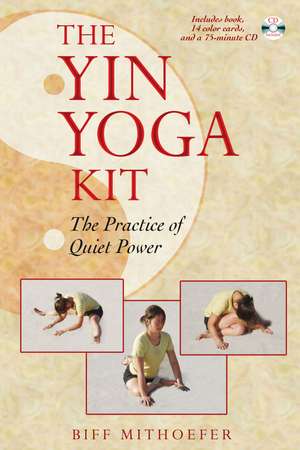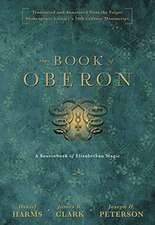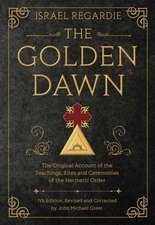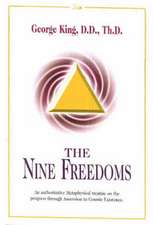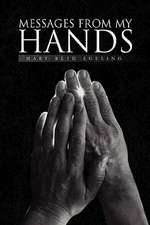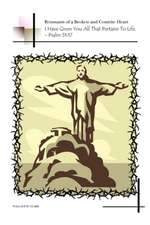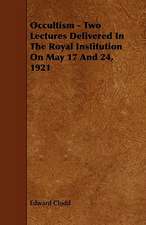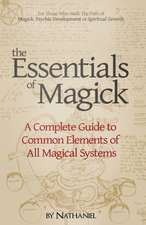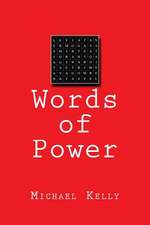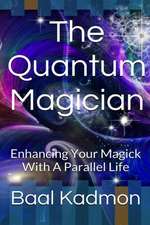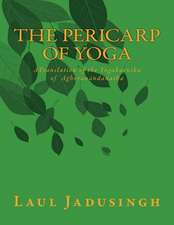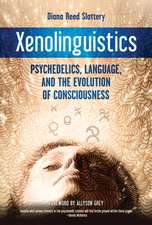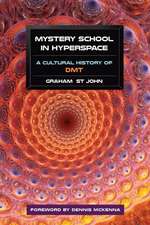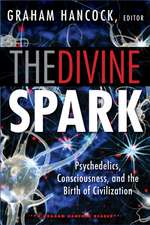The Yin Yoga Kit: The Practice of Quiet Power
Autor Biff Mithoeferen Limba Engleză Cards – 22 iul 2006
Preț: 122.12 lei
Nou
Puncte Express: 183
Preț estimativ în valută:
23.37€ • 24.46$ • 19.45£
23.37€ • 24.46$ • 19.45£
Disponibil
Livrare economică 08-22 martie
Livrare express 22-28 februarie pentru 36.51 lei
Preluare comenzi: 021 569.72.76
Specificații
ISBN-13: 9781594771163
ISBN-10: 1594771162
Pagini: 144
Ilustrații: Includes 14 color cards and 144-page book with 70 b&w illustrations
Dimensiuni: 152 x 229 x 43 mm
Greutate: 0.64 kg
Editura: Inner Traditions/Bear & Company
Colecția Healing Arts Press
Locul publicării:United States
ISBN-10: 1594771162
Pagini: 144
Ilustrații: Includes 14 color cards and 144-page book with 70 b&w illustrations
Dimensiuni: 152 x 229 x 43 mm
Greutate: 0.64 kg
Editura: Inner Traditions/Bear & Company
Colecția Healing Arts Press
Locul publicării:United States
Notă biografică
Biff Mithoefer teaches Yin Yoga at Omega Institute, Nosara Institute in Costa Rica, and throughout the United States. He lives in Dorset, Vermont.
Extras
The Practice of Yin Yoga
The practice of Yin Yoga addresses the more yin parts of the body. These are the parts of ourselves that lie closest to our core, specifically bones and connective tissue above the knees and below the navel. Unlike the muscles, which are the more yang parts of our bodies and which like movement and repetition, the connective tissue needs to be worked in a yin way. Yin practice is done with an attitude of quiet acceptance. The postures are all practiced on the floor and each is held for a long period, usually three to five minutes. By putting ourselves in safe and controlled positions, we can let the muscles around the areas that we’re working relax, allowing the connective tissue to be gently and safely maintained.
Because yin doesn’t exist without yang, yin practice also affects the yang tissues of the body, stretching and strengthening the muscles. However, because of the way Yin Yoga is practiced its primary effect is on the more yin tissue. Yin Yoga is not a replacement for more yang forms of yoga or exercise, but a compliment, helping to bring balance in our lives.
For me, the practice of Yin Yoga is important for three reasons:
1. It encourages the increased flow of qi or prana in the six meridians of the body that pass through the area of the hips.
2. It helps to maintain the health of the connective tissue.
3. It helps balance the yin and yang aspects of ourselves.
Guidelines for a Yin Yoga Practice
Assume the suggested or chosen posture and allow yourself to go to a bearable but challenging edge. You will probably feel some intensity of sensation and that’s fine as long as it feels safe to you and your breathing remains free and smooth. It is most important to be able to ultimately be at ease in the posture--allow the muscles to relax without striving to get deeper in the pose, accepting where you are in your body at that moment.
Allowing your muscles to relax and feeling them melt around your bones, stay still and hold the pose for the determined time. For most people five minutes works well. If you fall deeper into the posture as you hold it, that’s fine, but it’s important to be sure that you’re not striving to get deeper in the pose. Let any layers of holding drop away as you relax. Keep checking in with your breath; if you notice that you’re not able to breathe comfortably, you may be trying too hard. Just back off a little until you can breathe in a relaxed way while still maintaining a feeling of some intensity to the areas that the pose is targeting for you. In Yin Yoga, as in any physical activity, it’s important to honor your body--if ever a pose feels injurious be sure to back off or come out of the pose. Only you can know for certain the type of practice that is best for your body.
The Meridian Theory
In Taoist theory the human body is alive because of the mysterious life energy called qi (chi). In hatha yoga this force is known as prana. Qi fl ows throughout the body, bringing health and vitality to every cell.
Frog
Starting on all fours, spread your knees as wide as you comfortably can and sink back on to your heels. You can keep your arms at your sides or stretch them over your head.
Variations
Use cushions or bolsters under your head and arms and/or under your chest, belly, or pelvis to reduce any strain on your inner thighs. To warm up your knees and quadriceps, try holding Child’s Pose for several minutes before assuming Frog.
Cautions
If you’re not supported in some way, this posture may be stressful for the sacroiliac (S.I.) joint.
Benefits
Frog is a good stretch for your groin and back. It’s also a nice counterpose to Seal and Saddle. Because it’s a forward bend, Frog relaxes the whole body.
Meridians Stimulated
Frog stimulates four of the six meridians that pass through the hips: Liver, Kidney, Spleen, and Urinary Bladder. By freeing up the energy in these meridians it works to stabilize the emotions, calming fear, grief, worry, indecisiveness, and anger and fostering wisdom, gentleness, faithfulness, motivation, creativity, and kindness.
Chakras Affected
Frog has the strongest effect on the first three chakras: Muladhara, located at the base of the spine; Svadhisthana, located at the sacrum and genitals; and Manipura, located at the solar plexus. Promoting a healthy flow of energy to these chakras helps to dispel fear, guilt, and shame while affirming one’s right to be, feel, and act. When the first three chakras are healthy we feel grounded and secure, are comfortable with our sexuality, have the capacity to feel pleasure and pain, and have confidence and good self-esteem.
The practice of Yin Yoga addresses the more yin parts of the body. These are the parts of ourselves that lie closest to our core, specifically bones and connective tissue above the knees and below the navel. Unlike the muscles, which are the more yang parts of our bodies and which like movement and repetition, the connective tissue needs to be worked in a yin way. Yin practice is done with an attitude of quiet acceptance. The postures are all practiced on the floor and each is held for a long period, usually three to five minutes. By putting ourselves in safe and controlled positions, we can let the muscles around the areas that we’re working relax, allowing the connective tissue to be gently and safely maintained.
Because yin doesn’t exist without yang, yin practice also affects the yang tissues of the body, stretching and strengthening the muscles. However, because of the way Yin Yoga is practiced its primary effect is on the more yin tissue. Yin Yoga is not a replacement for more yang forms of yoga or exercise, but a compliment, helping to bring balance in our lives.
For me, the practice of Yin Yoga is important for three reasons:
1. It encourages the increased flow of qi or prana in the six meridians of the body that pass through the area of the hips.
2. It helps to maintain the health of the connective tissue.
3. It helps balance the yin and yang aspects of ourselves.
Guidelines for a Yin Yoga Practice
Assume the suggested or chosen posture and allow yourself to go to a bearable but challenging edge. You will probably feel some intensity of sensation and that’s fine as long as it feels safe to you and your breathing remains free and smooth. It is most important to be able to ultimately be at ease in the posture--allow the muscles to relax without striving to get deeper in the pose, accepting where you are in your body at that moment.
Allowing your muscles to relax and feeling them melt around your bones, stay still and hold the pose for the determined time. For most people five minutes works well. If you fall deeper into the posture as you hold it, that’s fine, but it’s important to be sure that you’re not striving to get deeper in the pose. Let any layers of holding drop away as you relax. Keep checking in with your breath; if you notice that you’re not able to breathe comfortably, you may be trying too hard. Just back off a little until you can breathe in a relaxed way while still maintaining a feeling of some intensity to the areas that the pose is targeting for you. In Yin Yoga, as in any physical activity, it’s important to honor your body--if ever a pose feels injurious be sure to back off or come out of the pose. Only you can know for certain the type of practice that is best for your body.
The Meridian Theory
In Taoist theory the human body is alive because of the mysterious life energy called qi (chi). In hatha yoga this force is known as prana. Qi fl ows throughout the body, bringing health and vitality to every cell.
Frog
Starting on all fours, spread your knees as wide as you comfortably can and sink back on to your heels. You can keep your arms at your sides or stretch them over your head.
Variations
Use cushions or bolsters under your head and arms and/or under your chest, belly, or pelvis to reduce any strain on your inner thighs. To warm up your knees and quadriceps, try holding Child’s Pose for several minutes before assuming Frog.
Cautions
If you’re not supported in some way, this posture may be stressful for the sacroiliac (S.I.) joint.
Benefits
Frog is a good stretch for your groin and back. It’s also a nice counterpose to Seal and Saddle. Because it’s a forward bend, Frog relaxes the whole body.
Meridians Stimulated
Frog stimulates four of the six meridians that pass through the hips: Liver, Kidney, Spleen, and Urinary Bladder. By freeing up the energy in these meridians it works to stabilize the emotions, calming fear, grief, worry, indecisiveness, and anger and fostering wisdom, gentleness, faithfulness, motivation, creativity, and kindness.
Chakras Affected
Frog has the strongest effect on the first three chakras: Muladhara, located at the base of the spine; Svadhisthana, located at the sacrum and genitals; and Manipura, located at the solar plexus. Promoting a healthy flow of energy to these chakras helps to dispel fear, guilt, and shame while affirming one’s right to be, feel, and act. When the first three chakras are healthy we feel grounded and secure, are comfortable with our sexuality, have the capacity to feel pleasure and pain, and have confidence and good self-esteem.
Cuprins
Preface
Introduction: The Practice of Yin Yoga
Part 1 The Principles of Yin Yoga
Yin and Yang
The Balance of Yin and Yang
Qi
The Birth of Qi
Physical Qi
Resonance, Intention, Transformation, and Attachment
Encouraging the Flow of Qi
The Taoist Meridian System
Table: Meridian Attributes
The Tantric Chakra System
Table: Chakra Attributes
Yin Postures, Meridians, and Chakras
Table: Meridians and Chakras
Affected by Each Yin Posture
Part 2 Practicing Yin Yoga
Guidelines for a Yin Yoga Practice
The Yin Yoga Postures
Resting Pose
Half Butterfly
Butterfly
Square Pose
Shoelace
Seal
Saddle
Swan
Sleeping Swan
Forward Bend
Dragonfly
Frog
Spinal Twist
Final Relaxation
The Practice of Mindfulness
The Practice of Loving Kindness
Using the Yin Yoga Kit to Design Your Personal Practice
How to Use the Yin Yoga CD
How to Use the Yin Yoga Cards
The Use of Props
Part 3 Anatomy and Yin Yoga
The Connective Tissue
The Sacrum and the Lumbar Spine
Relaxing the Iliopsoas
Tension and Compression
Movement in the Hips and Spine
Movement in the Hip Joints
Movement in the Spine
Table: Spine and Hip Movements in Yin Postures
Appendix 1: Some Sample Practices
Appendix 2: Practices for Specific Organ Meridians
Appendix 3: Using Acupressure Points while Practicing Yin Yoga
Resources
Acknowledgments
Introduction: The Practice of Yin Yoga
Part 1 The Principles of Yin Yoga
Yin and Yang
The Balance of Yin and Yang
Qi
The Birth of Qi
Physical Qi
Resonance, Intention, Transformation, and Attachment
Encouraging the Flow of Qi
The Taoist Meridian System
Table: Meridian Attributes
The Tantric Chakra System
Table: Chakra Attributes
Yin Postures, Meridians, and Chakras
Table: Meridians and Chakras
Affected by Each Yin Posture
Part 2 Practicing Yin Yoga
Guidelines for a Yin Yoga Practice
The Yin Yoga Postures
Resting Pose
Half Butterfly
Butterfly
Square Pose
Shoelace
Seal
Saddle
Swan
Sleeping Swan
Forward Bend
Dragonfly
Frog
Spinal Twist
Final Relaxation
The Practice of Mindfulness
The Practice of Loving Kindness
Using the Yin Yoga Kit to Design Your Personal Practice
How to Use the Yin Yoga CD
How to Use the Yin Yoga Cards
The Use of Props
Part 3 Anatomy and Yin Yoga
The Connective Tissue
The Sacrum and the Lumbar Spine
Relaxing the Iliopsoas
Tension and Compression
Movement in the Hips and Spine
Movement in the Hip Joints
Movement in the Spine
Table: Spine and Hip Movements in Yin Postures
Appendix 1: Some Sample Practices
Appendix 2: Practices for Specific Organ Meridians
Appendix 3: Using Acupressure Points while Practicing Yin Yoga
Resources
Acknowledgments
Recenzii
“Biff Mithoefer has created the most useful written material available for exploring Yin Yoga. Much more than an asana book, The Yin Yoga Kit teaches energetic principles, mental disciplines, and patient mindfulness. I highly recommend it!”
“Yoga and qigong are much more alike than they are different, causing many practitioners to say, ‘Chinese yoga is Indian qigong.’ The Yin Yoga Kit serves as a bridge between the two disciplines. It is like a mountain trail between China and India, probably through Tibet.”
"What makes The Yin Yoga Kit so great is the combination of the booklet, the durable double-sided cards AND the CD, all of which add to this well-rounded routine for both beginners and those who have long sought a yoga program that does more than just focus on muscle groups. This is a comprehensive package that would make a great and beneficial gift for a friend, or, even better, for yourself."
". . . a perfect companion for a nurturing yoga practice."
" . . . a perfect recommendation for anyone intersted in learning Yin Yoga. It's great for those who are not comfortable joining and paying for yoga classes and the kit allows you to work at your own pace and in the comfort of your home."
"Yin Yoga is a gentle practice that brings yoga back to its internal meditative roots, teaching you to relax."
“I love this kit, as well as this gentle and beautiful practice. It didn’t take long to incorporate these poses into my daily yoga workout, and they’re easy enough for anyone to do, even during the heat of the day. . . Highly Recommended.”
“Yoga and qigong are much more alike than they are different, causing many practitioners to say, ‘Chinese yoga is Indian qigong.’ The Yin Yoga Kit serves as a bridge between the two disciplines. It is like a mountain trail between China and India, probably through Tibet.”
"What makes The Yin Yoga Kit so great is the combination of the booklet, the durable double-sided cards AND the CD, all of which add to this well-rounded routine for both beginners and those who have long sought a yoga program that does more than just focus on muscle groups. This is a comprehensive package that would make a great and beneficial gift for a friend, or, even better, for yourself."
". . . a perfect companion for a nurturing yoga practice."
" . . . a perfect recommendation for anyone intersted in learning Yin Yoga. It's great for those who are not comfortable joining and paying for yoga classes and the kit allows you to work at your own pace and in the comfort of your home."
"Yin Yoga is a gentle practice that brings yoga back to its internal meditative roots, teaching you to relax."
“I love this kit, as well as this gentle and beautiful practice. It didn’t take long to incorporate these poses into my daily yoga workout, and they’re easy enough for anyone to do, even during the heat of the day. . . Highly Recommended.”
Descriere
An introduction to the practice of Yin Yoga that emphasizes its meditative roots and provides balance to our modern, yang lifestyles.
